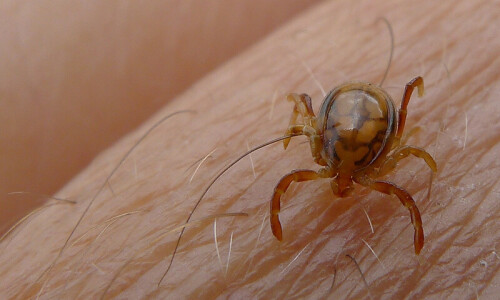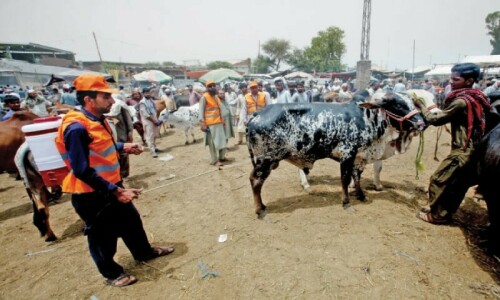QUETTA/KARACHI: The Congo virus situation in Quetta has taken a serious turn as another patient lost his life at Fatima Jinnah Chest Hospital on Monday, while five more healthcare providers affected by Crimean Congo Haemorrhagic Fever (CCHF) virus in Quetta’s Sandeman Hospital were shifted to a private hospital in Karachi.
This brings the total number of patients brought to Karachi to 11.
“It was 18th death due to Congo virus in Quetta during last few months,” a senior official of the health department told Dawn, adding that the victims include health providing staff who were infected while providing treatment to the patients brought to Fatima Jinnah Chest Hospital, Quetta.
The Sindh health department’s spokesperson said 11 Congo fever patients from Quetta had been admitted to Aga Khan University Hospital (AKUH) over the past two days. He pointed out that while the hospital was carrying its own procedures for diagnosis, only those healthcare providers who tested positive for CCHF were being sent to Karachi.
“The CCHF outbreak has created panic and scare back at the Quetta hospital and a lot of concern in Karachi, especially after an ailing doctor being brought to the city for treatment died on the way,” Sindh health department spokesperson Shabbir Ali Babar said, while referring to his telephonic conversation with a Balochistan health department official.
The Sindh health department had set up an eight-bed isolation CCHF unit at the Sindh Government Infectious Disease and Research Centre.
“The staff would be available round the clock,” he said, adding that no CCHF case had been reported in Karachi so far.
Dr Hafeez Kakar of Young Doctors Association-Quetta regretted that Balochistan hadn’t yet offered a facility for the immediate shifting of affected healthcare providers. “Today, the association managed to shift four more doctors to the AKUH. The Balochistan health department hasn’t responded yet to an appeal for transporting patients by air,” he regretted.
In Quetta, a high-level meeting convened under the leadership of Interim Chief Minister Mir Ali Mardan Domki on Monday to address the virus situation.
The meeting stressed the enforcement of SOPs during health emergencies. A temporary ban, under Section 144, on using private slaughterhouses for animal slaughtering in populated areas was also initiated for a duration of two weeks.
Plans were discussed to move more patients requiring specialised treatment to Karachi in consultation with relevant authorities. All affected medical personnel, including doctors, nurses, and paramedical staff, have already been relocated to Karachi.
“The livestock department should immediately start spraying in animal markets across the province,” he urged.
CCHF virus causes severe viral haemorrhagic fever with up to 40 per cent fatality. Spread via ticks and livestock, it can transmit human-to-human through bodily fluids.
Healthcare providers are vulnerable without infection control. So far, there is no vaccine for it.
Published in Dawn, November 7th, 2023














































Dear visitor, the comments section is undergoing an overhaul and will return soon.